I have a data base organized by neighborhoods for some city. The data contains economic information month by month for several years. My database looks like this (for a reproducible example, 3 years)
> head(data , 4)
neigh_id_shape m1_y1 m2_y1 .... m11_y3 m12_y3
id 1 7 6 -1 -3
id 2 3 -1 -5 3
id 3 -1 6 0 17
id 4 0 3 1 2
More than this, I have a shapefile object of the city and their neighboords. The "neigh_id_shape" variable in the data is the match variable. With this shapefile, I can plot a customized map using leafleft
> n_shape <- readShapeSpatial("path\\my_shape.shp")
leaflet() %>% addTiles() %>% setView(lng = center_city_long , lat= center_city_lat ,zoom=11) %>% addPolygons( data= n_shape , weight= 1 )
So, I would like to do a dynamic map (with a play button) which visualises the change over time (along the months variables). Furthermore, I would like construct two scales of colors for the values of the months: red scale and blue scale for negative and positive values, respectively.
New
According with one comemnt, I tryed this... but It does not works (see the picture after the script)
library(htmlwidgets)
library(htmltools)
library(leaflet)
#install.packages("geojsonio")
library(geojsonio)
llat<- c(-22.973897, -22.972892,-22.971588, 22.972270,-22.974700,-22.969869,-22.970847,-22.968832,-22.974660,-22.975243)
llong<- c( -43.185296,-43.187338,-43.185675,-43.185869,-43.190858,-43.186791, -43.188980,-43.187092,-43.193239,-43.193486)
#Build data.frame with 10 obs + 3 cols
power <- data.frame(
"Latitude" = llat,#c(33.515556, 38.060556, 47.903056, 49.71, 49.041667, 31.934167, 54.140586, 54.140586, 48.494444, 48.494444),
"Longitude" = llong,#c(129.837222, -77.789444, 7.563056, 8.415278, 9.175, -82.343889, 13.664422, 13.664422, 17.681944, 17.681944),
"start" = do.call(
"as.Date",
list(
x = c("1jan1960", "2jan1960", "31mar1960", "30jul1960", "1jan1961", "2jan1961", "31mar1961", "30jul1961" , "1jan1962", "2jan1962" ),
format = "%d%b%Y"
)
)
)
# set start same as end
# adjust however you would like
power$end <- power$start + 30
# use geojsonio to convert our data.frame
# to GeoJSON which timeline expects
power_geo <- geojson_json(power[,c(1,2)],lat="Latitude",lon="Longitude", pretty = T)
# create a leaflet map on which we will build
leaf <- leaflet() %>%
addTiles()
# add leaflet-timeline as a dependency
# to get the js and css
leaf$dependencies[[length(leaf$dependencies)+1]] <- htmlDependency(
name = "leaflet-timeline",
version = "1.0.0",
src = c("href" = "http://skeate.github.io/Leaflet.timeline/"),
script = "javascripts/leaflet.timeline.js",
stylesheet = "stylesheets/leaflet.timeline.css"
)
# use the new onRender in htmlwidgets to run
# this code once our leaflet map is rendered
# I did not spend time perfecting the leaflet-timeline
# options
leaf %>%
setView(lng = -43.187574 , lat= -22.971875,zoom=14) %>%
onRender(sprintf(
'
function(el,x){
var power_data = %s;
var timelineControl = L.timelineSliderControl({
formatOutput: function(date) {
return new Date(date).toString();
}
});
var timeline = L.timeline(power_data, {
pointToLayer: function(data, latlng){
var hue_min = 120;
var hue_max = 0;
var hue = hue_min;
return L.circleMarker(latlng, {
radius: 10,
color: "hsl("+hue+", 100%%, 50%%)",
fillColor: "hsl("+hue+", 100%%, 50%%)"
});
},
steps: 1000,
duration: 10000,
showTicks: true
});
timelineControl.addTo(HTMLWidgets.find(".leaflet").getMap());
timelineControl.addTimelines(timeline);
timeline.addTo(HTMLWidgets.find(".leaflet").getMap());
}
',
power_geo
))
